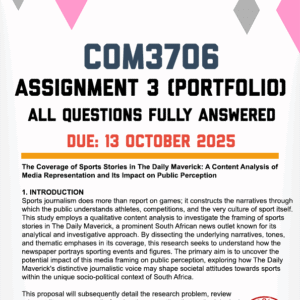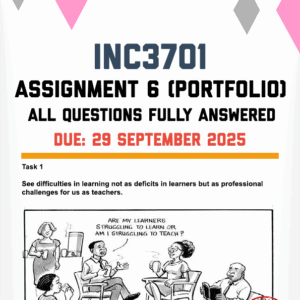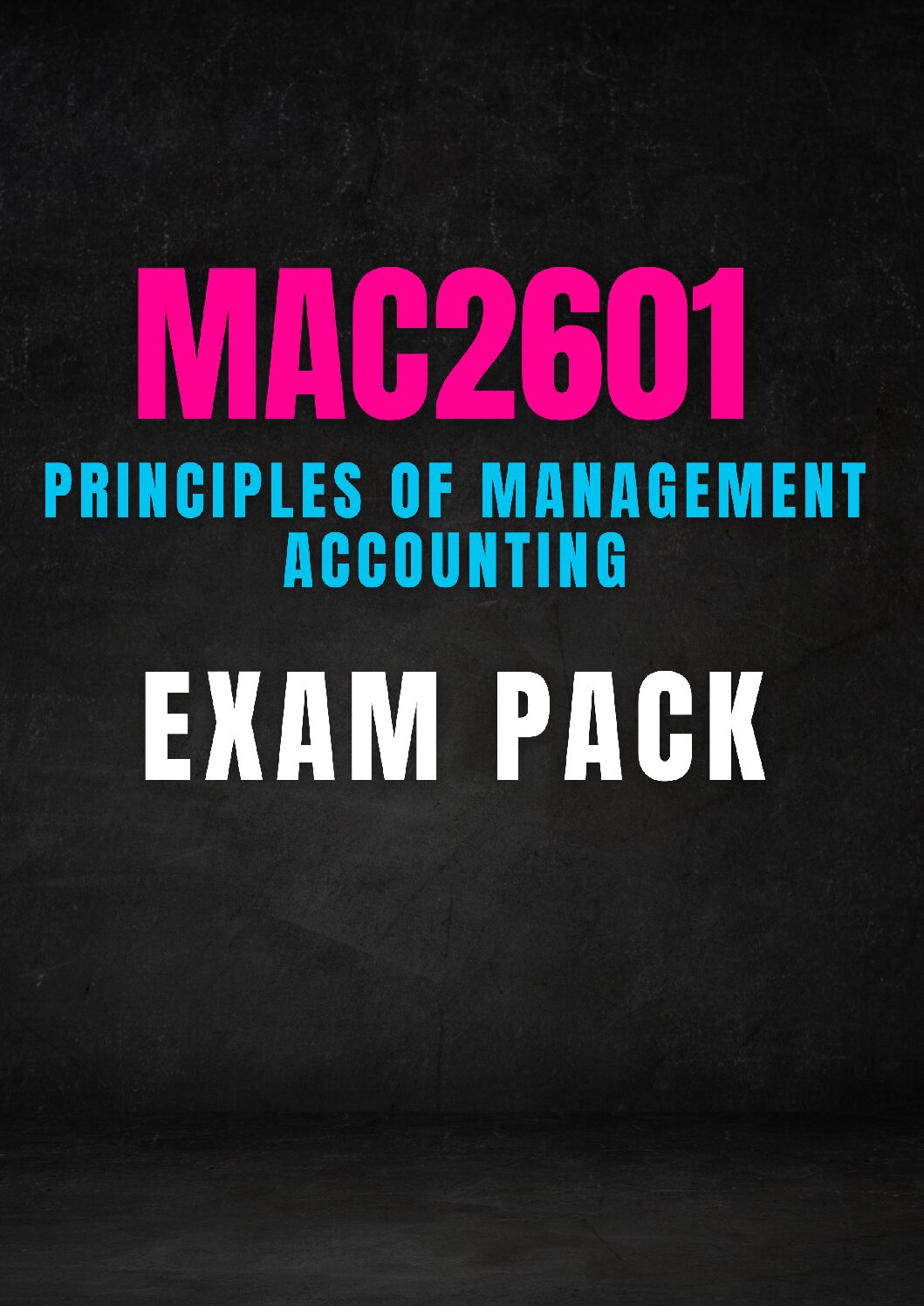Description
SUS1501 ASSIGNMENT 7 SEMESTER 1 2025 – FULLY ANSWERED. DUE 22 APRIL 2025. ALL QUESTIONS ANSWERED. INSTRUCTIONS:
Step 1: Set the scene
To set the scene for this assessment we want you to first try and estimate your own ecological
footprint. There are probably many ecological footprint calculators on the web but we suggest this
one because the data used in the graphs you have just seen is sourced from the same site: If this one doesn’t work, you can just google “ecological footprint calculator” and I’m sure you will
find another one.
Step 2: Write a comment about your footprint
Right, now that you have an idea of what your ecological footprint is, you are going to do what you
have done in most of the assessments up until now. You are going to post a comment (4 or 5
paragraphs this time) in the discussion forum below. Sounds simple enough right? Well yes and no.
Your answer must contain all of the following parts:
Part A
You need to say something about your footprint based on what you have just read in the
“Sustainability?” section. How do you feel about this result?
Part B
Next we want you to think back to your previous assessment, assessment 06. In that assignment
that dealt with saving the rhino, we asked you to think about the essentially virtue ethics
questions of: “So where do I fit in in this?”
In light of what you have discovered in this assessment in relation to your own ecological
footprint – i.e. your own engagement with nature – we want you to critically reflect on the
answer to the “So where do I fit in in this?” question that you submitted in assessment 06.
Do you think that the answer might need some adjustment or are you still happy that it is an
accurate and truthful reflection on your arête?
Part C – counts 60% of the total grade
Finally, the technical part is that we also want you to think about your ecological footprint
from the perspective of some of the stuff you learned about in the ethics core. In particular we
want you to think back on three of the traditions:
“Do the right thing – Deontology” – Here we want you to think about the sustainability
problem from the perspective of Kant’s categorical imperative (see Kant do it!);
“Fair’s Fair – Distributive Justice” – here you need to think about what is fair for our
children – for future generations – using Rawls’ principle of equality of fair opportunity
specifically (see How to share …. John Rawls (1921 – 2002))
“Greenies – Environmental Ethics” – we want you to consider the issues we have just
outlined from an anthropocentric position specifically.
Remember we must be able to see from your use of these that you have actually understood the
theory in question (the categorical imperative, the veil of ignorance, and anthropocentric
thinking). If we don’t see this you will not pass this assessment.



![LML4804 Assignment 3 Semester 2 2024 Answers [Due Date 25 September 2024]](https://studypass.co.za/wp-content/uploads/2024/09/Annual-Report-Cover-Page-6-300x300.jpg)









![BWE1501 Assignment 1 Semester 2 2024 Answers [Due Date 5 September 2024]](https://studypass.co.za/wp-content/uploads/2024/08/bwe1501-300x300.jpg)













Reviews
There are no reviews yet.